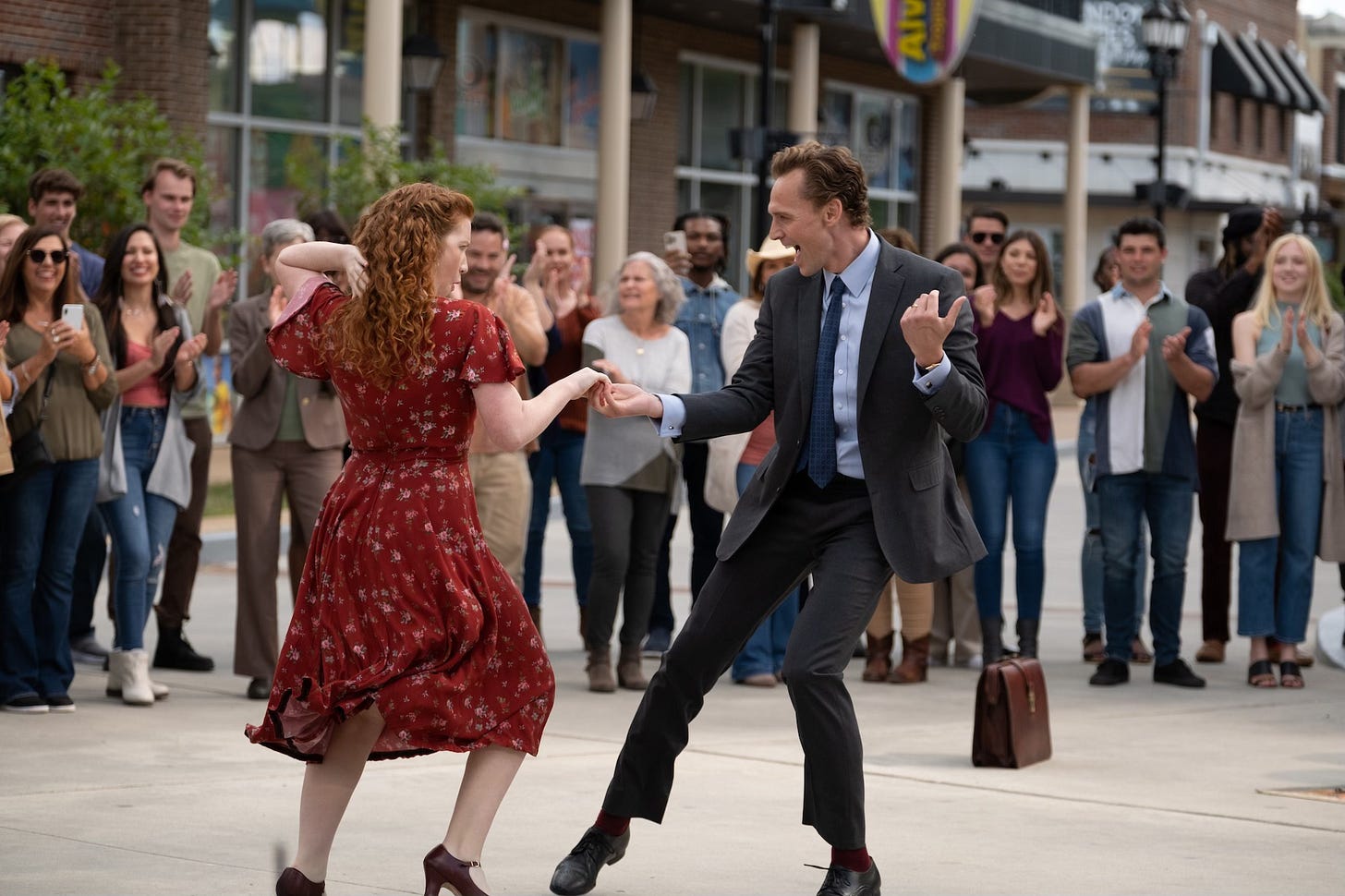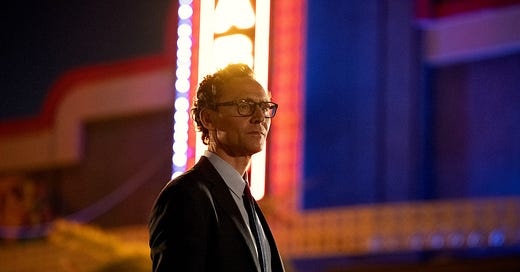
'The Life of Chuck' Wraps Basic Humanity in an Exhilarating Fable
Don't mistake simplicity for simple-mindedness in Mike Flanagan's wonderful adaptation of Stephen King's novella.
The Life of Chuck is not a deep film. It’s not a movie that needs to be unraveled, or one that begs to be interpreted in a multitude of ways. But just because The Life of Chuck is upfront with its message, that doesn’t mean it’s any less powerful or heartfelt. Similar to the film adaptation of another Stephen King novella, The Shawshank Redemption, Mike Flanagan’s movie is bracingly earnest, but also deceptive to those who can only see it as a “carpe diem”-type effort. The Life of Chuck does want people to seize the wonder of life, but what makes the movie sing is how it defines that wonder in every encounter we treasure and moment we embrace. It is a plea to understand that the multitudes within us are only created by the multitudes external to our experience. There is no rich inner life shut off from the world. And when we lose someone, it feels like a light has gone out in the universe because, in a way, it has.
Given NEON’s uplifting marketing approach (you can even gift a ticket to loved ones after seeing the movie yourself), I imagine some viewers will be a little stunned by the film’s first act, which sees the world on the edge of the apocalypse and centers on the fragile connection between schoolteacher Marty Anderson (Chiwetel Ejiofor) and his ex-wife Felicia Gordon (Karen Gillan). “Wasn’t Tom Hiddleston dancing on the poster?” Some viewers may ask. “Where’s my dancing Hiddleston?” But then the film starts to unfold, fall into place, and we can see this is a story about one Charles “Chuck” Krantz, played across three periods of life—as a young boy (Benjamin Pajak), a teenager (Jacob Tremblay), and an adult (Hiddleston). It’s a story about the experiences, both large and small, overt and implied, that make up a person.
There’s no shortage of stories about the power of the human spirit or that life must be lived to the fullest, and to merely file The Life of Chuck as greeting card pablum misses how Flanagan constructs the story and where he puts its emphasis. The Life of Chuck feels particularly vital right now in an age of rapid alienation, separation, and isolation. It feels like an attempt to grapple with the aggressive American individualism of our time, where so much of our experience is tailored to our needs and demands that we fail to see the humanity in others. Flanagan offers a counterpoint to that individualism, arguing that what makes us a singular person is every other person we meet, no matter how briefly.

Such a sentiment landed with me when I spotted my dearly departed pal Scott Wampler pop up in the background of the movie (he also plays a radio host in the film alongside his The Kingcast co-host Eric Vespe). I can’t claim to be one of Scott’s nearest and dearest (I couldn’t even afford to make it out to his memorial service, a regret I suspect will haunt me for years to come), but he did have an impact on my life despite our casual friendship. The Life of Chuck doesn’t pretend that all interactions carry equal weight, but it also acknowledges that we can’t know how people and encounters will affect and change us. We have to be open to the experience, especially in a time when those experiences are curtailed by what algorithms think we want. No recommendation would ever put a guy as freewheeling and rebellious as Scott in the orbit of someone as staid and uptight as me, but we still meshed (although I suspect more from his charisma than mine).
The Life of Chuck leans into these kinds of strange, beautiful interactions. It openly articulates that the universe is built on math, but it gets its beauty through art. The film can feel aggressively tidy at times, like when you have characters fully voice such ideas as Carl Sagan’s cosmic calendar to identify the brevity of our lives and the smallness of our physical existence, contrasted against the wealth of our experiences. But within the span of Chuck’s life, plenty of unanswered questions remain, and that feels purposeful on Flanagan’s part to emphasize human connection without tying everything off in a neat 1-to-1 ratio.
Some may bristle that The Life of Chuck, for a movie about life, is not messy enough, which is fair. Chuck is largely sainted here, but he’s sainted in the way a eulogy sands off the rough edges of a person’s life to try and reach the core of what made them lovely. There’s nothing “extraordinary” about Chuck, but Flanagan imbues his humble life with gravitas and awe. Would The Life of Chuck be more interesting if Chuck were kind of a bastard? Maybe, and perhaps he is—the film doesn’t pretend it can squeeze the totality of Chuck’s life into two hours, but instead seizes more on the idea of a life, and what gives it meaning in a meaningless universe. We can’t anticipate where exactly we’ll get that meaning. We don’t know how things will tie in to our experiences and what will make our lives richer.
Before I met my wife, I was a fan of the album 40 Days by The Wailin’ Jennys, particularly its final track, “The Parting Glass,” an old Scottish folk song. Years later, my wife and her friends would sing that song at the memorial service for our friend Greg, who, like Scott, also passed away last year. It’s a simple folk song, one passed down through the centuries, and one that still resonates because it understands life as meetings and partings. “The Parting Glass” plays over the end credits of The Life of Chuck, and that’s when I started to weep. I wept for Scott and for Greg and for their beautiful lives and how blessed I was to be in their universes, if only for a brief time.
The Life of Chuck is now playing in theaters in limited release. It opens wide on June 13th.










